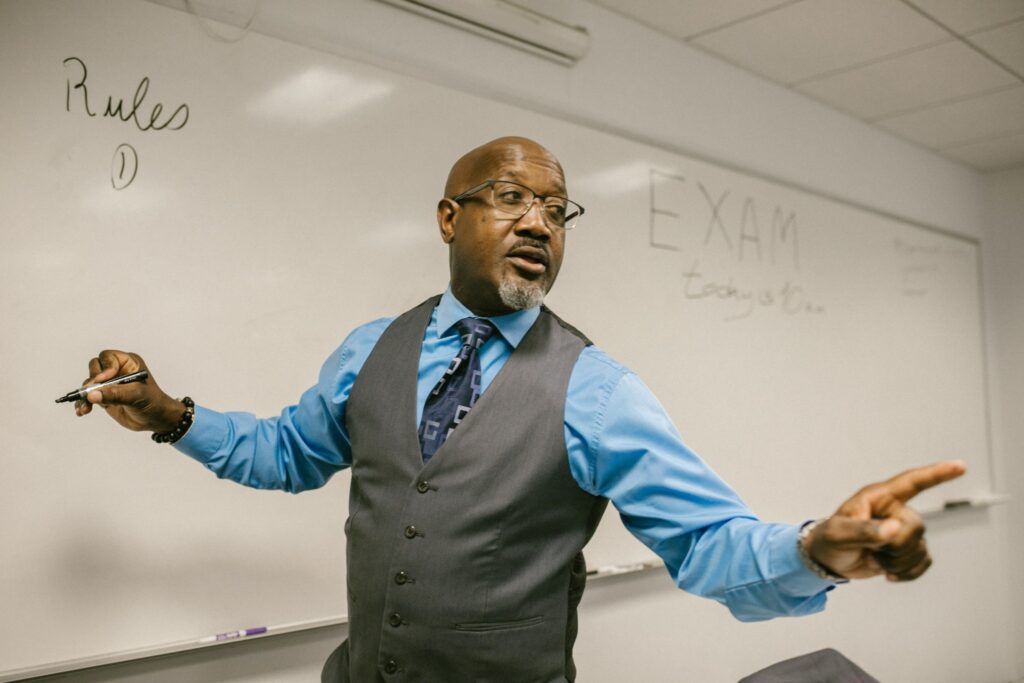With the holidays coming around, students around the country brace themselves for the inevitable barrage of questions from family. For many college students, especially seniors, that means dodging questions about their future plans. If you wonder about this question yourself, or just want to get ahead of your relatives’ grilling questions, don’t worry. We compiled a list of steps you can take to get a better grasp of your future.
Check out this list of ways to further your professional prospects and provide answers to prying family members!
1. Clubs on Campus

So many clubs on campus help students further their futures. Many schools host a variety of these organizations, from professional fraternities to student-run activism groups to professional development clubs. These organizations allow students to network with others that share their aspirations and learn about opportunities that interest them. Students get advice and form communities, building a support structure from those going through the same hiring processes as them. Many of these organizations host socials and other fun events as well, so students can make friends along the way!
2. Networking Events

Meeting people doesn’t get easier than networking events. Luckily for college students, most schools host these types of events regularly. This creates the perfect venue for students to meet recruiters and make connections for the future. Networking events allow students to ask questions about fields they harbor an interest in and get answers from the people with firsthand experience. Keep an eye out for emails from your career counselors to see when the next networking event happens on your campus!
3. LinkedIn

Love social media? Looking to make connections that will further your career? LinkedIn checks all your boxes. Fill out your profile and connect with some friends to start your LinkedIn journey. Connect with people you work with or want to work with and send them a message introducing yourself. These short introductions make a huge difference in such an impersonal dog-eat-dog world. Creating a profile early on allows students to keep track of their connections, stay in the loop with companies they may like to work with and look out for new opportunities.
4. Internships

Internships, internships, internships… Everyone seems to talk about them! Internships serve as a foray into a professional sector. This creates a perfect opportunity for students to test out possible career interests. Students can also try something totally new and unfamiliar to them without the pressure of selecting that as their “forever” job. This imparts valuable job experience and wisdom on students, serving as a resume booster and a job tester all in one!
“I learned so much through my internship this summer,” said Ohio State University third year Natanya Koshy. “I got a sneak peak into my future professional life and used my internship as a test run of my future after graduation.”
Not only do internships boost resumes, many students end up staying with companies they intern for in college. Even if a student realizes that they don’t want to work in that field later in life, they still make valuable connections with those working at the company they interned at. Need a letter of recommendation or some professional advice? Call up your boss from your internship! These connections form the foundation of professional life, so make sure you make a good impression through your internship. You’ll benefit from it for years to come.
5. Office Hours

Getting to know professors helps students in so many ways. Students show their commitment to the class which, in turn, can help boost grades and create a professional relationship with their professors. Professors love to help students with questions about class or their field of study. Look up your professors to see if their research interests mirror yours; if they do, then take a trip to office hours to discuss and find out more! You can learn so much from an expert in the field while getting feedback and advice from them.
6. Alumni Network

As a student at a university, you may hear you need to take advantage of your school’s alumni network. The school you graduate from constitutes a part of your identity. It gives you common ground with everyone else who ever attended your university, creating a unique networking opportunity. Alumni help one another out all the time. Sometimes, knowing an alumnus from your school at a job you apply for can give you a boost in the hiring process.
“[I] recommend creating a profile on LinkedIn and then connecting with Alumni with UC Santa Barbara,” said UCSB Associate Director of Employment Engagement Jo Ann Villanueva-Salvador, referring to a helpful LinkedIn networking group.
How does one go about connecting with alumni? Sending a simple message on LinkedIn or other alumni connecting sites can usually get you in the door. Make sure you express interest in their work and try to set up a meeting to get to know them a bit better. Tell them about yourself and your interests to see if they can provide any specific advice for you. Ideally, as you build a connection, they will contact you when they come across opportunities that may interest you later on!
7. Online Recruiting Sites

Most schools affiliate with a recruiting site. Whether Handshake or Indeed, make use of these sites while you can! Use the search parameters to find the best opportunities for you. Keep up to date with job opportunities in fields which interest you and apply easily through their site. Message alumni working at companies you apply at to make a connection. It doesn’t get easier than a recruiting site!
8. Campus Jobs

Although they may not seem the most glamorous, campus jobs can actually open worlds of possibilities to students. Whether getting more involved with certain departments or getting to know students and faculty from different backgrounds and areas of study, campus jobs allow students to learn more about their school and how it runs. The mere aspect of getting to know other motivated individuals at one’s school creates so many opportunities to network. Campus jobs boost students’ resumes, emphasizing their hardworking nature by showing their involvement through college. Bonus points if the campus job relates in some way to students’ future career interests!
9. Research Opportunities

Interested in a niche field of study? Know of a professor working on an awesome project? Want firsthand experience finding new innovations and technologies? Look into research! Research allows students to take control of their own learning and explore their interests.
“Right now, I’m helping a professor write a research paper about alternatives to discipline programs to aid nurses with substance abuse problems,” said San Diego State third-year Cristina Rivero. “As a nursing major, I’ve been able to learn so much more about problems actual nurses go through and how to help the nursing community.”
Grateful to learn more about a group she will soon belong to, Rivero’s experience served to educate her about some lesser-known aspects of her career. This research experience also allowed her to form a closer connection with the professor she researched for. A mentor in a field which interests you proves a very valuable asset. Plus, the experience that comes with research constitutes another added bonus. Getting published as an undergraduate can really boost your resume!
10. Career Services Center

If you find yourself in need of a job, a stop by your school’s career center can help you out. From advisors to job fairs to workshops to improve your resume, career centers can help. At some schools, alumni can access all the resources provided by the career center for a certain amount of time after graduation. Career advisors help so many students find jobs, whether still in school or recently graduated. Definitely take advantage of these programs while you can, they can help you boost your job-hunting game in so many ways!



















